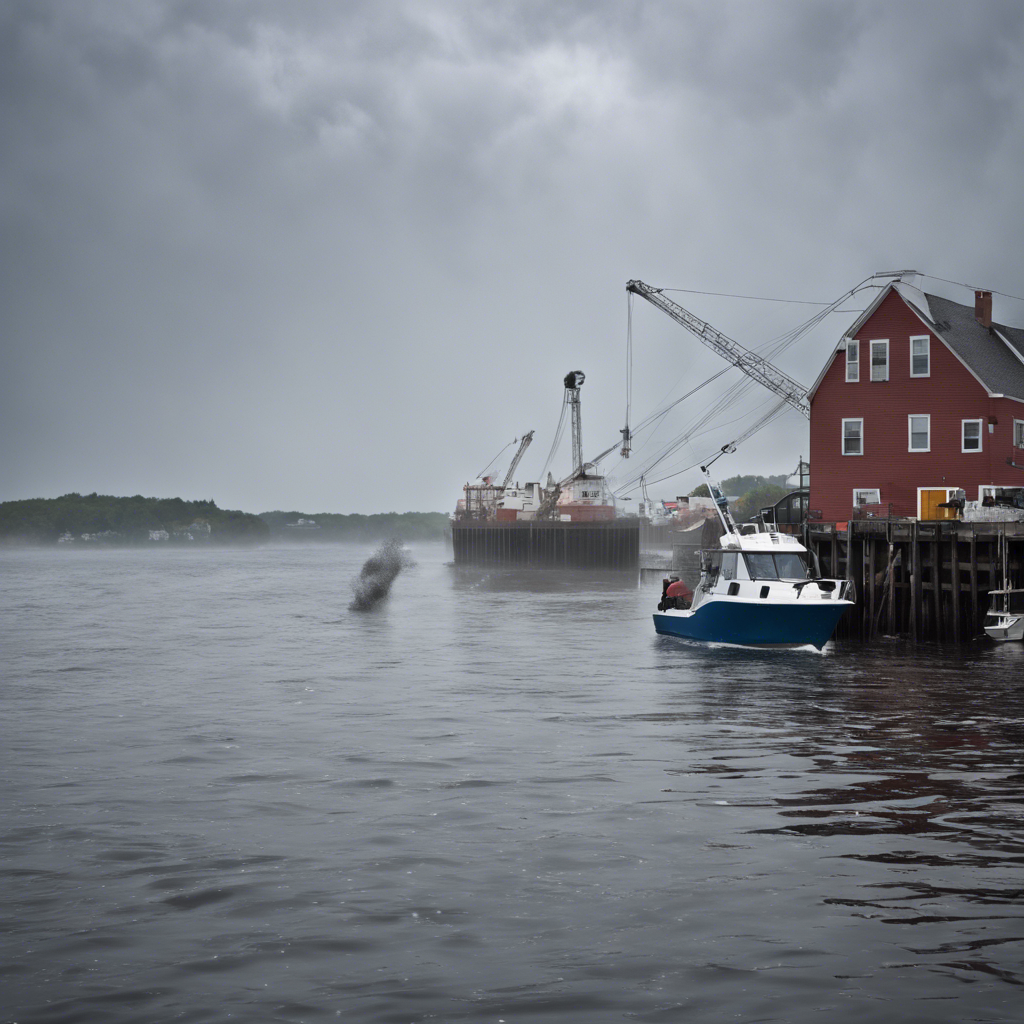Rising ocean temperatures and extreme rainfall events threaten the health of Casco Bay, raising concerns about pollution and long-term productivity.
Casco Bay, a section of the fast-warming Gulf of Maine, is facing a multitude of threats to its near-shore waters. Stormwater pollution, exacerbated by heavy rains and climate change, poses a significant challenge to the bay’s overall health. The Friends of Casco Bay, a local environmental organization, warns that low salinity and dissolved oxygen rates caused by heavy rainfall this year could have long-term implications for pollution and productivity. As the region grapples with the consequences of climate change, efforts are being made to mitigate the impact on the bay’s ecosystem.
Accelerated Climate Change and its Effects on Casco Bay
Casco Bay is experiencing a warming trend, with temperatures rising by approximately one degree every decade. This increase is causing significant changes in the bay’s ecosystem. Once-productive mudflats are now devoid of clams, and eelgrass beds are disappearing. Lobstermen are now forced to fish further out to sea, as near-shore waters become less hospitable. The rapid pace of these changes is alarming, as nature struggles to adapt to the accelerated effects of climate change.
Stormwater Runoff and Pollution
The heavy rains experienced this year have resulted in low salinity levels in Casco Bay. Chief Scientist Mike Doan explains that such swings in salinity are not solely caused by rainfall but are primarily the result of massive amounts of stormwater runoff from densely developed communities. This runoff carries pollutants such as forever chemicals, microplastics, and excess nitrogen. When excessive sewage and agricultural or lawn runoff enter the bay, it triggers the growth of phytoplankton, which can smother mudflats, close clam beds, and choke out eelgrass beds. The impact of this pollution is a cause for concern.
Dissolved Oxygen and its Role in Bay Health
Dissolved oxygen is a crucial indicator of the bay’s health. Casco Bay, in its pristine state, is a cold and oxygen-rich environment that supports a diverse range of marine life. However, as the bay warms, the oxygen levels are expected to decline. Warm water has a reduced capacity to hold oxygen, which poses a threat to marine life. Continuous sensors deployed in various locations have shown that the dissolved oxygen rate has been consistently below the six-year daily average for several months this year. While not immediately dangerous, this decline raises concerns about the long-term impact on marine life.
Future Challenges and Proposed Solutions
The challenges facing Casco Bay are expected to worsen with climate change, as the region anticipates more rainfall and extreme precipitation events. The Friends of Casco Bay plan to present their findings to the Maine Climate Council and the Maine Department of Environmental Protection. They advocate for updated regulations that require developers to account for more frequent and intense rainfall in a hotter, wetter Maine. Additionally, low-impact development and stormwater runoff treatment measures should be promoted to mitigate the impact on the bay’s water quality.
Conclusion:
Casco Bay’s health is at risk due to the combined effects of climate change and stormwater pollution. The heavy rains experienced this year have highlighted the vulnerability of the bay’s ecosystem to changing environmental conditions. Efforts are underway to address the challenges posed by climate change, with a focus on developing sustainable solutions to protect the bay’s water quality and marine life. As the region grapples with the consequences of a warming climate, it is crucial to take proactive measures to ensure the long-term health and resilience of Casco Bay.











